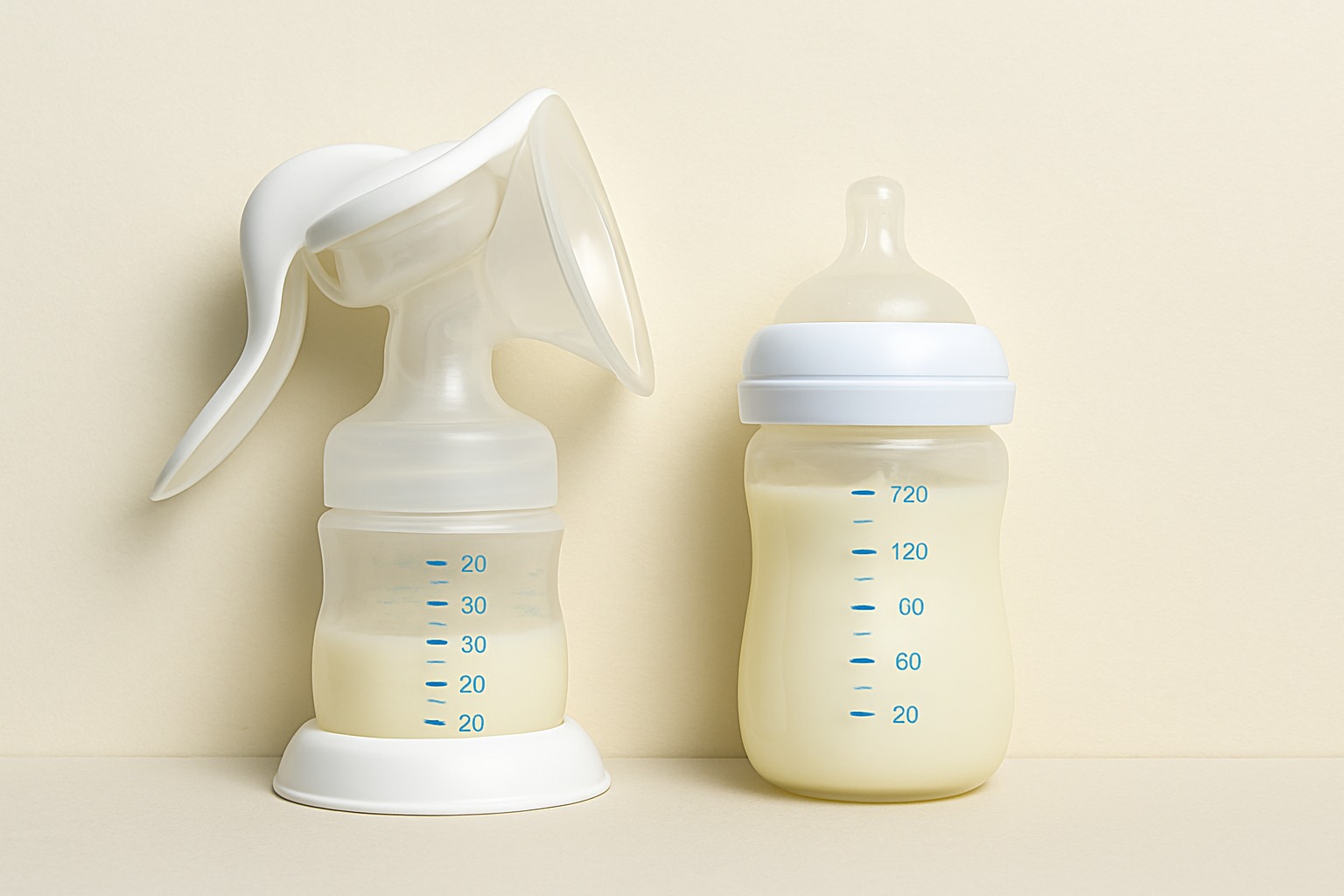
Colic in Newborns: Causes, Symptoms, and Soothing Remedies for Relief
Colic in newborns is a common yet challenging condition that many parents face during the early months of their baby’s life. It is characterized by long periods of crying, often for no apparent reason, which can be frustrating for both the baby and the parents. While it is difficult to witness your baby in discomfort, understanding the causes, recognizing the symptoms, and learning how to soothe your little one can make a huge difference. This blog will explore everything you need to know about colic in newborns, from its causes to effective soothing remedies. With the right knowledge, you can provide relief for your baby and create a more peaceful environment for everyone.
What is Colic in Newborns?
Colic is a term used to describe excessive crying in babies that usually happens within the first few months of life. It is most commonly defined by episodes of crying that last for at least three hours a day, more than three days a week, and for three weeks or longer. Despite being one of the most frequent complaints among new parents, colic is not necessarily a sign of illness. It is often linked to an underdeveloped digestive system and other factors that affect babies during this early stage of life.
Colic is not a disease, but it can be a cause of stress for both the baby and the parents. Many doctors believe it results from a combination of factors such as digestive problems, overstimulation, or emotional stress. While colic is typically a temporary condition, the intensity of the crying can lead to frustration, and parents may feel helpless or unsure of what to do.
How Long Does Colic Last?
Most cases of colic start around two to three weeks of age and generally peak around six to eight weeks. Fortunately, it usually resolves by the time the baby reaches three to four months old. During this period, the digestive system matures, and the baby becomes better able to cope with stimuli. While the crying may reduce over time, each baby is unique, and the length of colic can vary.
Causes of Colic in Newborns
Digestive Issues and Gas
One of the main causes of colic is believed to be related to a baby’s immature digestive system. Newborns have delicate stomachs that may struggle to handle certain foods or the process of digestion. Gas, constipation, or difficulty in breaking down milk may lead to bloating, discomfort, and ultimately crying. Some babies may also swallow air while feeding, which leads to gas buildup in the stomach, causing pain and fussiness.
Overstimulation and Emotional Stress
Babies are sensitive to their surroundings, and overstimulation can lead to fussiness and crying. Exposure to loud noises, bright lights, or too much activity can overwhelm a newborn, making them feel stressed. This emotional stress might trigger crying episodes, contributing to the symptoms of colic. Additionally, babies are still adjusting to life outside the womb, and their nervous systems are immature, which makes it harder for them to cope with the constant sensory input.
Infant’s Immature Nervous System
An underdeveloped nervous system plays a significant role in the development of colic. Newborns’ nervous systems are still learning how to regulate bodily functions such as crying and digestion. As a result, babies may cry excessively even when there is no apparent cause. The lack of control over their emotions and physical sensations may cause colicky behavior, especially during the early months.
Symptoms of Colic in Newborns
Excessive Crying and Fussiness
The hallmark of colic is intense crying that lasts for several hours, often in the late afternoon or evening. The crying may start suddenly and may not be easily soothed by feeding or changing.
Pulling Legs and Clenched Fists
During colic episodes, babies may exhibit physical signs of discomfort, such as:
- Pulling their legs toward the abdomen
- Clenching their fists
- Arching their back
These behaviors may indicate abdominal pain or cramping.
Crying at Similar Times Each Day
Colic episodes often occur at the same time each day, commonly in the late afternoon or evening. This pattern can help differentiate colic from other causes of crying.
Soothing Remedies for Colic Relief
Feeding Techniques and Burping
Proper feeding techniques can minimize air intake:
- Hold the baby in an upright position during feeding.
- Ensure a proper latch if breastfeeding.
- Use bottles designed to reduce air swallowing.
- Burp the baby frequently during and after feeds to release trapped air.
Gripe Water and Colic Medicine
Gripe water, an herbal remedy, is sometimes used to alleviate colic symptoms. However, its efficacy is not well-established, and it’s essential to consult a pediatrician before use. Some over-the-counter colic medications may be available, but medical advice is crucial to ensure safety and appropriateness.
Comforting Movements and Holding Positions
Gentle movements can soothe a colicky baby:
- Rocking the baby in your arms or a rocking chair.
- Using a baby swing with a gentle motion.
- Holding the baby in the “colic hold”—face down along your forearm with the head supported.
Creating a Calm Environment
Reducing sensory stimuli can help:
- Dim the lights and minimize noise.
- Play soft, soothing music or white noise.
- Maintain a consistent routine to provide a sense of security.
Infant Massage and Tummy Time
Gentle abdominal massage in a clockwise direction can aid digestion and relieve gas. Supervised tummy time strengthens abdominal muscles and may help reduce colic symptoms.
When to Seek Professional Help
Persistent Crying or Health Concerns
If your baby’s crying becomes excessive or persistent and does not improve with soothing methods, it might be time to consult a doctor. While colic is temporary, other health conditions such as acid reflux, ear infections, or allergies could also cause prolonged crying. If your baby shows signs of pain or discomfort outside of typical colic behavior, seek medical attention to rule out any underlying issues.
Lack of Weight Gain or Poor Feeding
If your baby is not feeding well, losing weight, or is showing signs of dehydration, it is important to seek professional help. While colic may not interfere with feeding in most cases, it can sometimes cause babies to feed less effectively, which can impact their growth and health.
Preventing Colic in Newborns
Gentle Feeding Techniques and Burping
To prevent colic, use gentle feeding techniques that minimize the amount of air your baby swallows during feedings. Hold your baby in an upright position while feeding, and be sure to burp them regularly to reduce gas buildup. Choosing the right feeding bottle with an anti-colic design can also help reduce air intake.
Reducing Overstimulation and Stress
A calm, quiet environment can help prevent colic from worsening. Try to reduce the amount of noise, bright lights, and other forms of overstimulation that your baby may encounter during the day. Creating a consistent routine can also help your baby feel more secure and less likely to experience stress or discomfort.
Monitoring Diet and Formula Choices
For breastfeeding mothers, certain foods in your diet (such as dairy or caffeine) may contribute to colic symptoms. If you suspect this might be the case, consult with your pediatrician about making changes to your diet. If your baby is formula-fed, discuss formula options with your doctor to see if a different type might help with colic.
Frequently Asked Questions (FAQs)
How can I tell if my baby has colic or if something else is wrong?
Colic is characterized by excessive crying, usually at the same time each day, and often accompanied by physical signs like pulling legs or clenching fists. If your baby has other symptoms, such as fever, vomiting, or difficulty feeding, it may be a sign of another issue, and you should consult a doctor.
Can colic be prevented, and what are the best ways to avoid it?
While colic cannot be entirely prevented, you can minimize the chances by using gentle feeding techniques, avoiding overstimulation, and creating a calm environment. Swaddling, tummy time, and proper burping can also reduce the likelihood of colic episodes.
What is the best remedy for colic relief?
There are several remedies that can help alleviate colic, including gripe water, proper burping, and using soothing movements like rocking. Every baby is different, so it may take some trial and error to find what works best.
When should I seek medical help for colic?
If your baby’s crying persists despite your efforts to soothe them or if you notice signs of illness such as fever, vomiting, or poor feeding, it’s important to seek medical attention.
Is there any connection between colic and other health conditions?
In most cases, colic is not related to a serious health condition. However, some babies may experience colic symptoms alongside other conditions like acid reflux or allergies. A doctor can help rule out any other causes of your baby’s discomfort.
Colic in newborns is a common yet challenging experience for many parents. While the exact cause of colic remains unclear, it is often a temporary condition that resolves as your baby’s digestive system matures. Understanding the symptoms and causes of colic, as well as implementing soothing remedies, can help you manage the condition and provide relief for your baby. Remember, every baby is unique, and what works for one may not work for another. Do not hesitate to consult with your pediatrician if you have concerns or if your baby’s symptoms worsen. With patience, support, and the right techniques, you can help your baby through this difficult phase and enjoy those peaceful moments once again.
Support When You Need It Most From the Comfort of Home
At Eureka Home Health Care Center in Dubai, we understand how overwhelming caring for a newborn can be, especially when dealing with conditions like colic. Our team of experienced general practitioners provides home visit consultations tailored to your baby’s needs, ensuring gentle and professional care without the stress of clinic visits.
Whether you are seeking reassurance, routine checkups, or support with newborn concerns, Eureka is here to help reliably, safely, and conveniently at your doorstep.
✅ Trustworthy care at your convenience
✅ Licensed and DHA certified healthcare professionals
✅ Dedicated support for you and your baby in your own home









